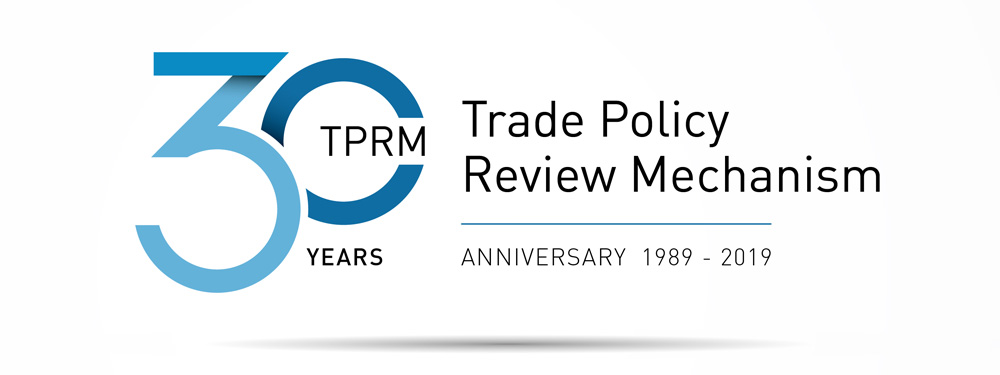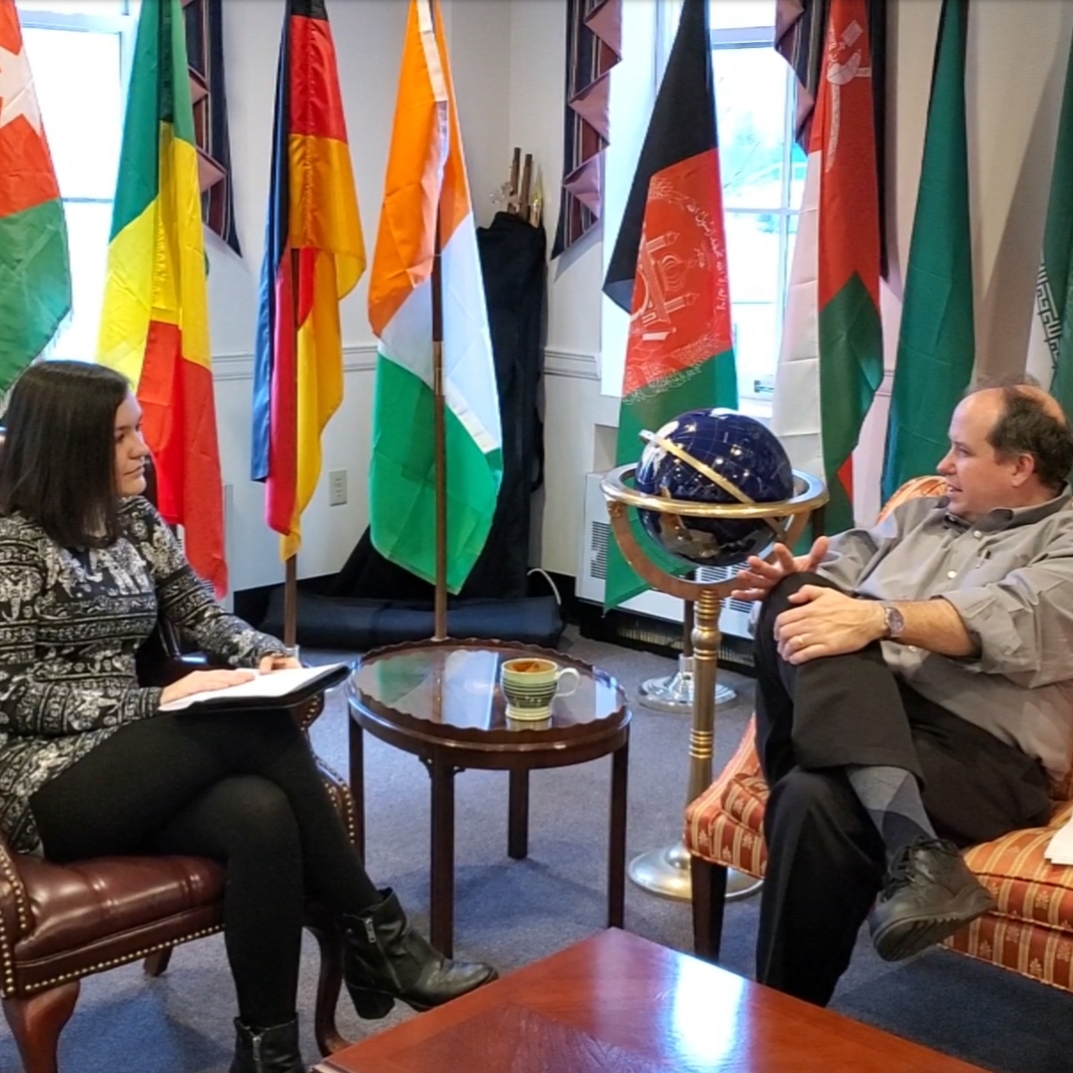An Interview with Professor Martin Edwards: Trade Policy, Transparency, and Economic Surveillance.
 Martin S. Edwards is an Associate Professor & Chair in the School of Diplomacy
Martin S. Edwards is an Associate Professor & Chair in the School of Diplomacy
and International Relations at Seton Hall University, where he teaches classes on
International Organizations and Research Methods.He is currently a Research Fellow with the University of Southern California’s Center for Public Diplomacy.
He currently serves as an Associate Editor for International Studies Quarterly, and his book on IMF and WTO economic surveillance was published in 2018. Professor Edwards will be participating as part of a panel at the WTO headquarters on November 27, 2019 where he will discuss the intricacies of how economic surveillance and trade policy review mechanisms have evolved over the last thirty years.
https://www.youtube.com/watch?v=Rrk56FqNfJY
For those of us who haven’t had a chance to read your book the IMF, the WTO & the Politics of Economic Surveillance or aren’t well versed in economic trade policy, what are the key findings in your analysis?
So I’ll start with the beginning – Why did I do this? In the book what I look at is sort of an understated aspect of what the IMF and WTO do. They issue reports on the state of a country’s economy so for the IMF it’s about the state of the economy in general and for the WTO it’s about the state of a country’s trade policy. These things are understood well as little pieces of what these organizations do, and these organizations also practice them very differently. The IMF’s approach is very top down, and the WTO’s approach is based empirically.
So, what I wanted to understand is.. they focus a lot on certain international organizations, about how they decide, and I wanted in a sense to find whether that difference in design makes a difference in output of these organizations and their surveillance. I found that it actually doesn’t make that much of a difference. What I look at is a couple of things, I look at the extent to which there is geopolitical bias in reports and I find that for the WTO it doesn’t seem to exist, meaning that the WTO treats all members the same. For the IMF it does exist to some extent, but it does not affect markets. So that is to say the IMF might understate the situation in a country, but its not as if credit markets are affected by it.
The bulk of the book I look at the response of the IMF and domestic actors and third parties to the release of these reports. There I find that these reports exist, meaning transparency is a good thing, but they aren’t covered in the media at all, or in the press. Its like they just do not exist. Similarly for the WTO, the reports that I look at are the ones that focus on China. If there is any place where transparency makes a difference, it should be with regarding reports on China. I look at how members of congress respond to these reports, and members of congress don’t reference these reports at all, which is interesting.
Lastly, I look at the effects on third parties. So for the IMF I look at the effect on markets. For the WTO I look at the effects on trade that takes place, and what I find is that governments might not want to be transparent because they might think that.. well.. if we give away information about the trade policy – that governments may want to file trade disputes against them – that doesn’t seem to happen. What does happen is that governments that know they’re going to be transparent in the coming years.. cheat less. So this soft law that we think wouldn’t have any meaningful consequences actually does.
What do these findings mean for WTO and IMF staff, or the organizations as a whole?
So this is interesting.. these organizations are like anybody else, they don’t really like bad news. So I presented this at the IMF and they had all sorts of questions and they didn’t really like the idea that the findings weren’t being used. Well the fact is that.. that’s what the data shows.. this is how we do this work; how they do this work – not on the basis of whether they’ll like it or not.
The WTO is having a conference next week about the 30th anniversary of this mechanism. So they want to ask all sorts of questions about where should we be going. So I’m going to use some of these findings to talk about where they should be going and a lot of that is being more conscious of the fact that the leverage of these reports is not as great as it could be. It should be talked about.. about what other countries think of the US and the fact other countries asked hundreds of questions of the US in its peer review which was conducted around this time last year. So we’ll see what those conversations are like – they might also not like what they hear, but that’s okay.
In your book, you examine the effectiveness of economic surveillance. Can you explain the concept of economic surveillance? What is it and who does it?
So surveillance is actually the IMF’s word for this, and it does have this kind of a Edward Snowden connotation to it. It’s not that right, it’s not very cloak and dagger – it is routine monitoring, it is routine oversight. A whole lot of international organizations do this, but we tend not to study them because we think “ah.. these are just reports.. they don’t mean anything” but it raises the questions, is that actually true? If we don’t study it then we have no basis to actually make that assessment. So I wanted to try to kind of fill in a gap which existed in a lot of the scholarship.
In your opinion how can the structure or design of economic surveillance be reworked to have the most efficient outcomes? And does this depend on country specific variables?
This is a bit of a problem because it needs to be more public, and “public” in a different sense than how these organizations think about. The fact that all sorts of interest groups, all sorts of think tanks are concerned about stabilizing the economy but they don’t.. talk about what these reports are saying – that’s a problem. So, from the standpoint of these organizations they think of themselves as transparent. We’re putting information out there, but they need to have greater ownership over where that goes. So that means putting more effort into actually communicating, and having press conferences about these reports, and integrating it into their digital diplomacy or using media more effectively to get the word out, and relying on that information as a kind of natural force multiplier, but that’s a hard thing for these organizations to do because it’s sometimes the communications side of the house that tends to be not very well supported.
You have been invited to participate in a panel on Trade Policy Review Mechanisms which will take place in Geneva at the WTO’s headquarters this month, where one of the agenda items involves assessing transparency as it has evolved throughout the last few decades of trade policy. Can you explain why maintaining transparency in trade policy has become increasingly important over the past 30 years?
Well the problem is this: countries have incentives to cheat, they have incentives to adopt trade barriers that might not be visible and then to restrict access to their markets – supporting their own firms in the process. Well the way forward then is to be able to document what countries trade policies are so that transparency helps solve the present dilemma. It’s fundamentally important, but now given that we have this deepening trade war between the US and China, and arguably with the Europeans over steel, and hopefully not autos.. that kind of transparency is fundamental. If we want to further liberalize international trade then we need to know what countries are honoring their commitments.
Through the lens of the IMF, WTO, or member-states, is economic transparency always a good thing?
Well this is tricky, because transparency can be a double edged sword. If you go to buy a car, you know full well that they are never going to tell you what the car actually costs. They’ll have a price on it, and they’ll negotiate around that price, but you don’t know exactly what that car costs. That opacity is a source of bargaining power.. so getting to transparency is difficult. Is it a good thing? most certainly, because what are the alternatives? If we didn’t know whether countries would cheat what would we do? Would we impose trade sanctions on them inadvertently on the basis of no evidence?.. On the basis of the president woke up and felt surly and is tweeting so there you go..
That sort of thing is fundamentally important to us – the problem is that we’ve kind of oversold transparency. In the 90’s when people talked about transparency, they talked about how it would completely change the world. Here, because it’s not percolating domestically, it’s not being used by policymakers, and it’s not being referenced in the media – we don’t see those effects which everyone thought was going to happen. So, we need to have a deeper conversation – not just about being transparent – that information has to be used in decision making.

For more information on the WTO’s conference read more here.
This interview was conducted, transcribed, and written by Nicole Kalczynski. Nicole is a first-year graduate student at the School of Diplomacy and International Relations, Seton Hall University, specializing in foreign policy analysis with a regional concentration in European affairs. Nicole is a graduate research assistant at the Center for the United Nations and Global Governance Studies and associate-editor for the Journal of Diplomacy at the School of Diplomacy.
Special thanks to David Gutierrez Arvidsson for recording the interview. David is a Master of Arts candidate in International Relations and Diplomacy with specializations in Latin America and the Caribbean as well as Post-Conflict State Reconstruction & Sustainability. He is also the graduate UN Youth Representative for the Center for UN and Global Governance Studies at Seton Hall University.
